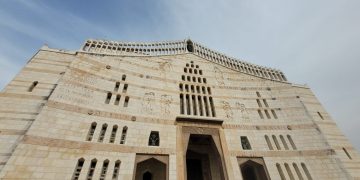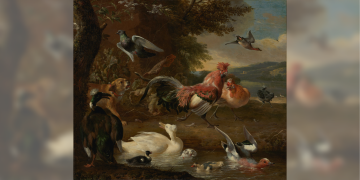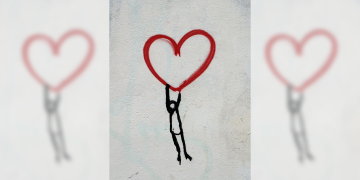Palm Sunday, Maundy Thursday, Good Friday, Holy Saturday. Though not widely observed by some of us, they mean more than just red and green letters on our calendars, and many believers from different cultures and traditions commemorate these holidays. We might have heard these mentioned in a sermon or participated in a service dedicated to one of these days – in fact, there are many stories and lessons that these days can teach us as modern-day Christians.
Palm Sunday
Palm Sunday is a solemn and joyous day that marks the beginning of the Holy Week. People parade and wave palm branches (some even decorate their branches with flowers), accompanied by hymn-singing and scripture-reading.
As Jesus entered Jerusalem on a donkey, people who’d heard of His miracles were captivated by this teacher. Some wondered whether He might be the Messiah for which they longed for centuries, who would bring peace and restore their nation. (John 12.12-19)
In a world torn apart by violence, war, and injustice, we can echo with the Israelites that we desperately need a king to put all things right. We pray in solidarity with many suffering believers, we pray for those who are yet to be touched by Jesus: “Hosanna, deliver us.”
In a world torn apart by violence, war, and injustice, we can echo with the Israelites that we desperately need a king to put all things right. We pray in solidarity with many suffering believers, we pray for those who are yet to be touched by Jesus: “Hosanna, deliver us.”
Maundy Thursday
The word Maundy means “command”, as Jesus commanded His disciples of things that believers of the world still hold in high regard: wash another’s feet (John 13.13), remain in me (John 15.4), love each other (John 15.17), and celebrate the Communion (Luke 22.19).
Churches who commemorate this day often recount Jesus’ sayings at the Last Supper. The day before His crucifixion, Jesus spent this precious time with His disciples celebrating the Passover meal, a major Jewish tradition that celebrates God’s deliverance of the Israelites from Egypt’s oppressive enslavement (go watch the Prince of Egypt for the full story, or even better, read Exodus).
The next time you are in a hurry to grab a quick bite, Maundy Thursday serves as a good reminder that as broken as we are, we are beloved because there is a God who willingly let His body be broken on the cross. We are free to love others as He first loved us. (1 John 4.19)
Maundy Thursday serves as a good reminder that as broken as we are, we are beloved because there is a God who willingly let His body be broken on the cross. We are free to love others as He first loved us.
Good Friday and Holy Saturday
There are many expressions of worship and liturgy on how these days are observed, but all dwell on the moment of Jesus’ suffering and death on the cross, and the silence between His death and resurrection. It could be reading the passion narrative, a procession, or even a theatrical performance.
Christians acknowledge that their lives and the fabric of reality have changed because of what Jesus has done on the cross: our sins have been forgiven, death and the power of evil have been conquered, we are new creations and adopted as sons and daughters. But before the Resurrection, God Himself came to the world and died a horrible and shameful death, and His friends and families mourned Him.
We can only come to a deeper understanding of the good news of Easter when we appreciate and feel the weight of the cross and let our lives be transformed by it. When we are in pain or grief, just as the disciples waited and lived in uncertainty while their hope lay in the tomb, we can be sure that the ultimate hope is yet to come. We will experience different kinds of death in our lives, but we live with the promise of resurrection. We are Easter people living in a Good Friday world*.
We will experience different kinds of death in our lives, but we live with the promise of resurrection. We are Easter people living in a Good Friday world*.
——
*Barbara Johnson, Splashes of Joy in the Cesspools of Life































































